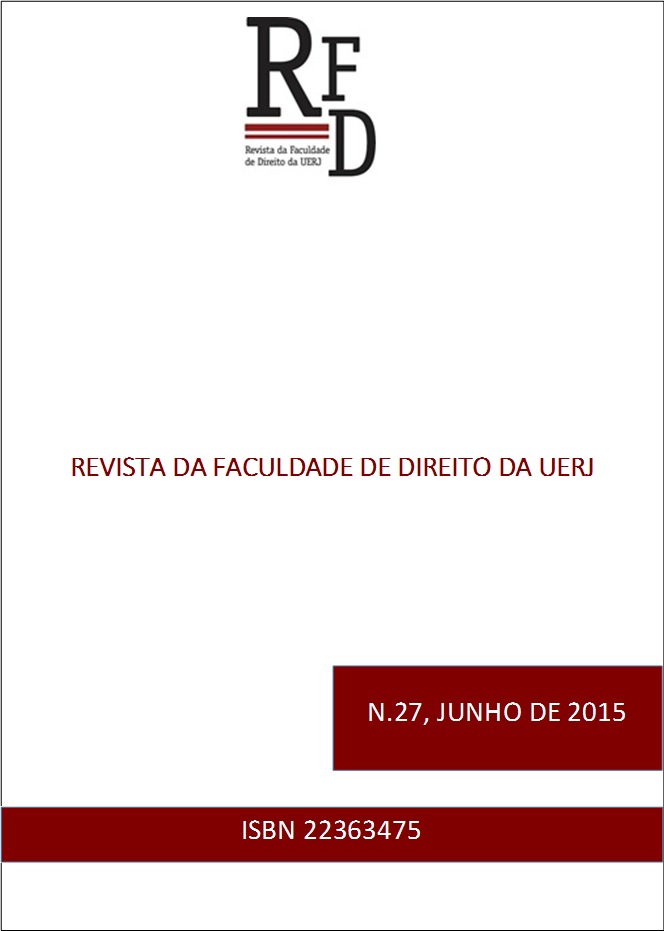ALÉM DE RAWLS: ALGUMAS CRÍTICAS DE AMARTYA SEN SOBRE IMPARCIALIDADE, EQUIDADE E LIBERDADES
DOI:
https://doi.org/10.12957/rfd.2015.12433Palavras-chave:
John Rawls, Justiça, ImparcialidadeResumo
DOI: 10.12957/rfd.2015.12433
O presente trabalho analisa alguns aspectos mais basilares da teoria da Justiça de John Rawls, sob a perspectiva dicotômica entre Justiça Transcendental e Justiça Comparativa, esboçada por Amartya Sen. Os dois prismas analisados no artigo são a ideia de liberdade de Rawls e o caráter transcendental de sua teoria derivados de sua abordagem contratualista, na qual pessoas unem-se voluntariamente em um plano hipotético com um propósito de obter benefícios maiores que conseguidos de forma isolada. A partir da racionalidade das partes com um desinteresse pessoal e com um interesse geral garantidos por um hipotético véu da ignorância gera os princípios necessários para uma sociedade justa, que somente pode ser alcançada com a constituição de uma sociedade politicamente estruturada. Neste contexto, Sen analisa os problemas nessa concepção formula outra na qual a relação entre a instituição política e o comportamento individual real é vital para uma completa concepção de justiça.
Downloads
Publicado
Como Citar
Edição
Seção
Licença
Direitos Autorais
oArtigos publicados na Revista da Faculdade de Direito da UERJ (RFD/UERJ)
Os Direitos autorais dos artigos publicados pertencem à Revista da Faculdade de Direito da UERJ (RFD/UERJ). É permitida a reprodução total ou parcial dos artigos desde que citada a fonte.
oReprodução parcial de outras publicações
Artigos submetidos que contiverem partes de texto extraídas de outras publicações deverão obedecer aos limites especificados para garantir originalidade do trabalho submetido. Plágio em todas as suas formas constitui comportamento antiético e é inaceitável.
Recomenda-se evitar a reprodução de tabelas e ilustrações, extraídas de outras publicações. O artigo que contiver reprodução de uma ou mais tabelas e/ou ilustrações de outras publicações só será encaminhado para análise se vier acompanhado de permissão escrita do detentor do direito autoral do trabalho original para a reprodução especificada na Revista da Faculdade de Direito da UERJ (RFD/UERJ). A permissão deve ser endereçada ao autor do trabalho submetido. Em nenhuma circunstância a Revista da Faculdade de Direito da UERJ (RFD/UERJ) e os autores dos trabalhos publicados nesta revista repassarão direitos assim obtidos.
·Os trabalhos não aceitos para a publicação serão devolvidos aos autores, se solicitado.
A Revista da Faculdade de Direito está licenciada com uma Licença Creative Commons Atribuição 4.0 Internacional.
Este trabalho está licenciado sob uma Licença Creative Commons 4.0, Atribuição-Sem Derivações.
Esta licença permite copiar e redistribuir o material em qualquer suporte ou format para qualquer fim, mesmo que comercial, desde de que citada a autoria original.











